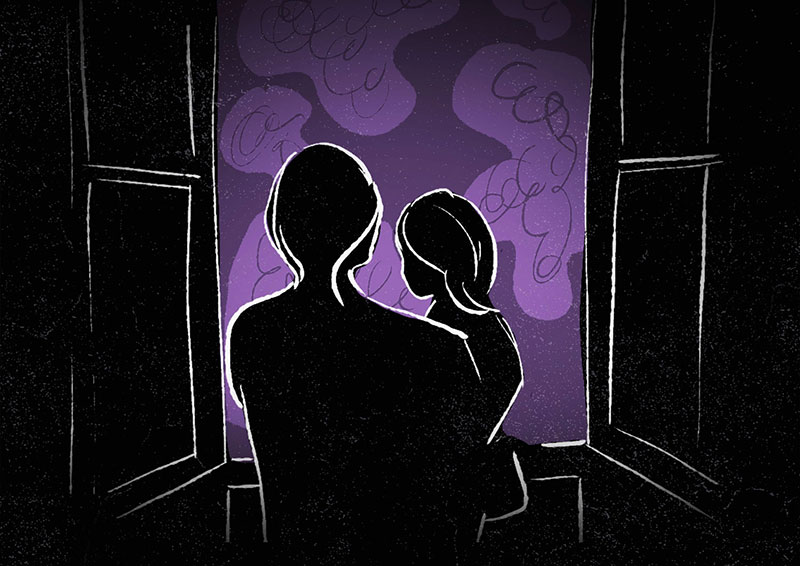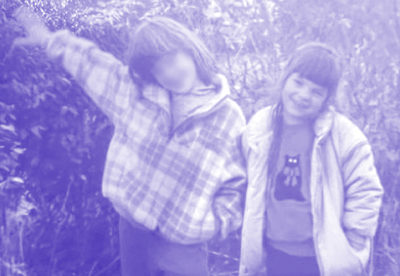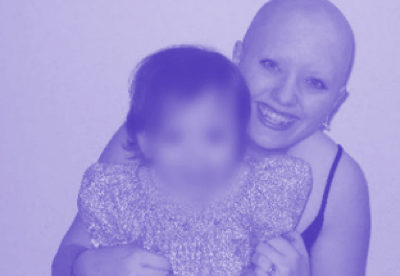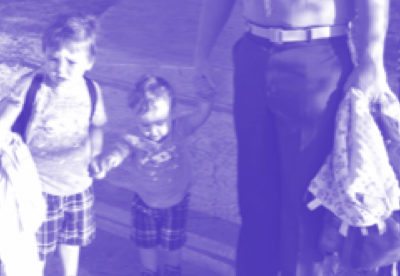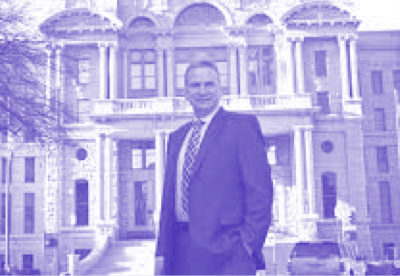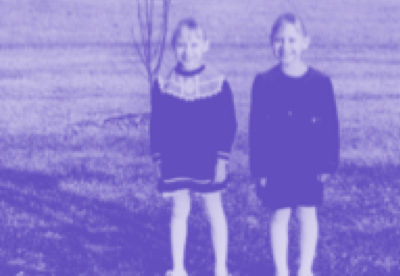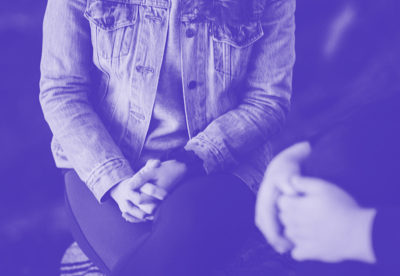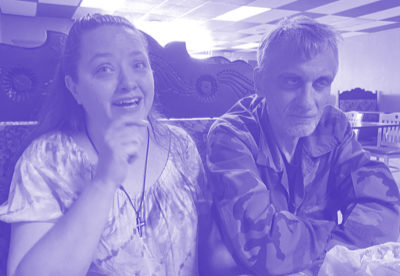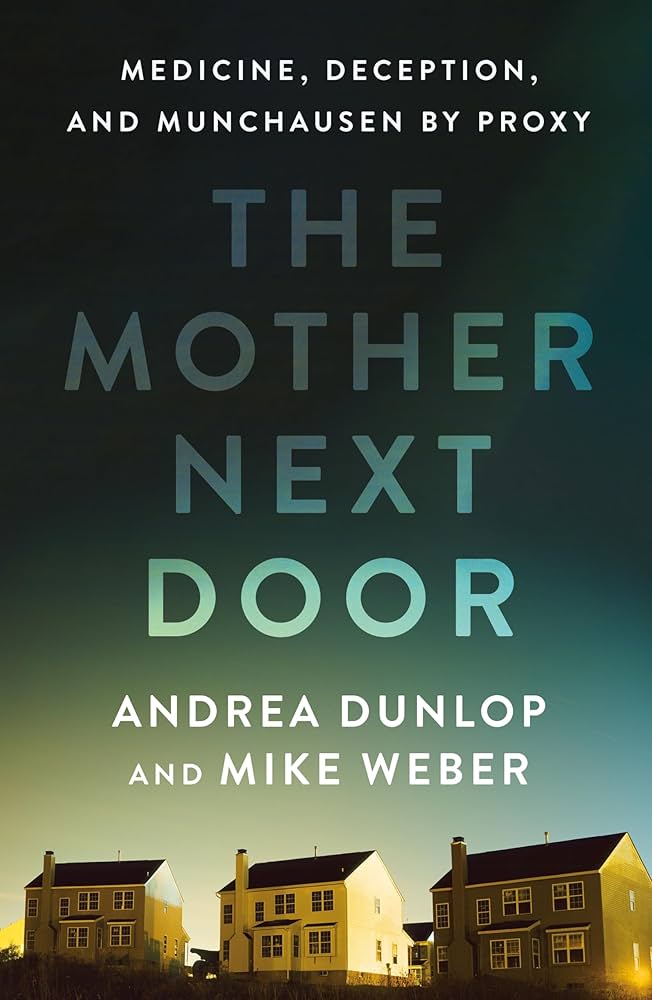SEASON 03 | EPISODE 15
The Trials of Dr. Sally Smith (Season Finale: Part 1)
In an exclusive interview with Dr. Sally Smith, host Andrea Dunlop travels to Florida to speak to the embattled child abuse pediatrician about her life and work and the Maya Kowalski case that saw her cast as the villain of a Netflix film.
We get an inside look into Dr. Smith’s groundbreaking career as one of America’s first board-certified child abuse pediatricians. We learn what it was like to face some of the most difficult cases imaginable all while raising two children of her own. And we see how the toughness necessary for her work led her to be ruthlessly judged in the public eye.
This must-listen first installment of our season finale sets the stage for explosive revelations about the Kowalski case, the four other “falsely accused” families in the Netflix film, and much more.
Host Andrea Dunlop:
https://www.andreadunlop.net
For behind-the-scenes photos:
https://www.instagram.com/andreadunlop/
Support the show and get exclusive bonus content:
https://patreon.com/NobodyShouldBelieveMe
For information and resources:
https://www.munchausensupport.com
The American Professional Society on the Abuse of Children’s MBP Practice Guidelines can be downloaded here.
More about Dr. Marc Feldman:
https://munchausen.com
[00:00:00] Nobody Should Believe Me is a production of Larj Media. That’s L A R J Media.
Before we begin, a quick warning that in this show we discuss child abuse and this content may be difficult for some listeners.
People believe their eyes.
That’s something that actually is so central to this whole issue and to people that experience this is that we do believe the people that we love when they’re telling us something. If you questioned everything that everyone told you, you couldn’t make it through your day.
I’m Andrea Dunlop and this is Nobody Should Believe Me.
If you’d like to support this show, You can join us on Patreon or subscribe on Apple Podcasts. You’ll get all episodes early and ad free, as well as lots of exclusive bonus content.
If monetary support is not an option, rating and reviewing the show helps a ton, as well as sharing on social media or wherever you talk to people. If you or someone you know is suffering from medical child abuse, please go to [00:01:00] munchausensupport. com. We have lots of resources there for survivors, families, and professionals.
We also accept donations if you would like to help us continue to do that work. And we love hearing from you, so do reach out. Our email is hello at nobodyshouldbelieveme. com. Or you can leave us a voicemail at 484 798 0266. And we may use that voicemail in the show. So please be sure to let us know if you do not want us to do that.
As I was setting out to make this season, there was one person that I wanted to talk to the most because I felt like she had been the most vilified out of this group of doctors who have really been put through it with this movie and with this case. And when I tell you I thought there was no way I was going to get an interview with this woman, I mean, I really, I put in a couple of requests
through contacts that [00:02:00] I have and just kind of forgot about it because I just thought there was no way this person would ever trust anyone in the press.
It wasn’t until I went down a bit of a rabbit hole about Dr. Sally Smith, which is one of the things I do best, uh, that I realized why some of these stories about her that were featured in the film Take Care of Maya sounded a little bit familiar. One of the first times that Dr. Smith was covered in the press was back in December of 2019.
She was featured in the first installment of Mike Hicks and Boggs Do No Harm series, which was a series for NBC about, quote, falsely accused parents, and that eventually became a podcast as well. Dr. Smith is featured in the final anecdote that Mike Hicksenbach tells in that piece, which is the story of Viviana Graham, and she’s also featured in the Netflix film.
You may remember her, she’s the one who read the Christmas card from Dr. Sally [00:03:00] Smith. Right above that part of the story is A story with a number of pictures. About Megan Carter and her case and Megan is my sister
This is the first time that I have been covering something that people came into with strong feelings because of this Netflix film a lot of people watch this and took it all in as I’m sure I would have taken it all in if I was not looking at it through this particular lens and People don’t like to think they’ve been fooled That is a huge theme of our show.
So I’ve realized that in some small, but for me, very meaningful way, Dr. Sally Smith and I have ended up playing a similar role. You know, we’re asking people to look at a truth that they really don’t want to see. And some people are going to hate us for it. [00:04:00] Police report, our next witness is Dr. Sally Smith.
Watching Dr. Smith take the stand in the Kowalski v. Johns Hopkins All Children’s trial, you know, restrained as her testimony was by the court’s rulings about what she could say about medical child abuse, I was really impressed. I have to be honest. Gregory Anderson, the lead attorney for the Kowalskis, was really grinding my gears by that point.
Well, isn’t it true, ma’am, that you are not a medical investigator? You are, in fact, a medical prosecutor. That’s absolute nonsense. Doctors are pretty reticent to talk to the media, even at the best of times, for all of the reasons we’ve been discussing. I mean, for one thing, it’s against the law to talk about any of the details of someone’s health or a child’s health.
And on top of that, this particular doctor has gotten worse treatment [00:05:00] in the media than anyone else. Anything I have ever seen. So, I tried those couple of contacts as kind of a Hail Mary, but I wasn’t surprised when I didn’t hear anything back. And, you know, after what Hicks and Bogg and Daphne Chen and the filmmakers from Take Care of Maya had done to this woman, like, why would she ever trust anyone in this sphere again?
But then, in September, when we were just a few episodes into Season 3, I got a voicemail. Hi, Andrea. Um, this is Patrick. I am Dr. Sally Smith’s son. I was shocked when I heard from you. Um. Given how your mom’s been treated in the media, I mean, did that feel risky, even reaching out to me? It felt really risky.
We had received harassment, um, online. We were concerned about people actually coming to her house. You know, we have that fear, even now, my family does, about any sort [00:06:00] of media contact. And so it took two to three weeks, I think, before I even started to consider the idea of, of reaching out to you all. I think we, we feel a bit of a bond because there’s just so few people that it seems like are understanding what’s happening here and it can make you feel like you’re losing your mind a little bit.
Um, and I really appreciated being able to have that connection with you. And I, I’m assuming that it took some convincing to get your mom. To be open to the idea of talking to a podcaster. Um, she was really hesitant at first. I think, you know, rightfully so. I’m kind of a podcast junkie, or at least I was.
I think, um, this last few months has kind of Broken my brain a little bit and kind of changed my ability to consume anything. And so, um, so I’d say [00:07:00] at least used to be, and I remember talking to my mom and telling her, like, you know, I’ve listened to a lot of different shows and I said, like, this one is, is different, or at least it’s in, you know, the high, uh, high tier of like doing your homework and documenting sources and claims.
And it was through that combination of sort of my. experienced consuming of podcasting and my, my take on it to her, plus her just listening to some of those episodes and getting a sense of the kind of work that you all do. Patrick and I had a number of lengthy phone conversations throughout the fall and we kept in touch as we both watched in escalating horror as the Kowalski trial just went off the rails.
A few days after the verdict, he texted me that his mom was in.
I’ve learned over the last couple of years of making this show that there are some conversations that [00:08:00] really need to happen in person. So my producer Tina and I took a quick six hour flight to Tampa, Florida and drove to meet Dr. Sally Smith at her home in a sleepy neighborhood in St. Petersburg. Let’s talk about Sally.
Whoops! Oh my god, I knew I was going to spill coffee on myself. This is Dr. Becks, our secret Florida doctor friend. Hi!
It’s so nice to meet you. Can I give you a hug? Oh, okay. Sally’s house is warm and cozy. She has this sort of arty, funky house. There’s a lot of family photographs everywhere. Oh yeah, that’s my grandson. Now that photo there is, like, recent. She had this beautiful tapestry that was, on her table that had been gifted to her by someone in her family who used to work as a designer in New York.
And, you know, Sally Smith herself kind of has a like warm, arty vibe. She has a, when she’s wearing a [00:09:00] flowy silk shirt that had sort of a tie dye pattern on it. She had her gray hair like really neatly tucked back in a French braid. If I could just put you two right here, if you’re comfortable, or I can go back.
I have been so anxious to talk to you. I’ve talked a couple times on the phone. You know, you were my number one for the season that I wanted to talk to you and I, I didn’t think I’d get the chance because obviously you’ve had some, uh, some experiences with the media so far. Yes, it’s been interesting. Can I just ask, like, how have you been feeling about this interview coming up?
Well, in some ways I’m kind of interested to have some alternate information about me out in the, you know, in the cloud and the internet and everything. Um, it, it’s been kind of strange because, I mean, honestly, [00:10:00] Problems in the media have been going on since roughly December of 2018. The stakes of this conversation were really high and we were both a little nervous.
I’ve been a little surprised how little response there’s been from the American Academy of Pediatrics or 30 child abuse pediatricians I’ve worked with for 30 years or whatever. And I, I understand, um. To a certain point, but, uh, I was just a little surprised. Now, was that the Daphne Chen piece in, about this case that kind of started the whole There was a woman, Katie Legrone, from South Florida, maybe Lauderdale area or something, that did I think it was actually, uh a news story on television, not a print story, um, within a week or two before Daphne Chen’s article came out.
And then within [00:11:00] another week or less, Mike Hicksenbaugh’s article came out. So there was just a big, you know, internet hubbub at that point. As I mentioned, fortunately, I’m not big on social media at all. So I, I knew of the things, but, um, but I, I wasn’t really down the rabbit hole, as one would say. This made sense to me because I can see how Dr.
Smith is just the kind of person that Keeps her head down and does her job and she does one of the most difficult jobs I can possibly imagine and when I brought that up to her, she was pretty humble about it. Well, it’s funny because I don’t think people think about it as that. My father’s a neurosurgeon and so I grew up around medicine and And you grew up in St.
Louis. In St. Louis. That’s right. And, [00:12:00] you know, I was a candy striper in the hospital as a teenager and stuff. And, you know, I just, I, um, got a summer job in a lab, you know, things like that. So I just had more exposure to medicine. And honestly, there was a biology teacher I had in high school that, you know, talked about going into medicine.
And I’m like, Oh, maybe that would, you know, might be good. Um. So then, when I was a medical student, And how did your dad feel about you going into medicine? I think probably generally excited, although somewhat, with some trepidation in terms of just what that means for a person and the schedule that’s involved and, you know, all of that kind of thing.
I mean, he had a much worse schedule than I ever did, um, you know, as a neurosurgeon going to operate in the middle of the night and things like that. So yeah, I mean he was supportive, but uh, you know, probably recognized it wasn’t [00:13:00] going to be the easiest road. And then when I was in medical school, there’s a woman named Dr.
Mary Case, who is pretty active in some of the child abuse conferences and things like that. She is, besides being a wonderful person, she is an expert in neuropathology. And I’m not sure why, as a senior medical student, I did an elective in the city morgue. And, uh, she talked to me about my interests at that, by that time I, I knew I was applying for pediatric residencies.
Dr. Mary Case took young Sally Smith under her wing and she threw her right into the deep end. So I saw, you know, just whatever this was, 25, 30 cases and we discussed them and, you know, things like that. And I guess partly, I don’t know, maybe I have some DNA in there for the neuro part, but [00:14:00] partly, um, related to reviewing those cases, I just got interested in child abuse.
So how old were you when? That was happening. So I was, let’s see, in medical school, I would have been 23, 24. I was a little young all the way through, so I guess no more, I’m sorry, 25. What strikes me about your profession and this sort of being like your entry point, I mean that’s, it’s sort of a part of humanity that even if most of us sort of tacitly accept that it exists, like not something people want to look at.
No, and Well, you know, those kind of people abuse their children, but not people like me. Right. Um, and, you know, people who look like me, they, they don’t abuse their children. Right, right. This is a sort of far off, hold it at a, yeah. And, I mean, for you, you know, as a young person in that moment, I mean, Did that keep you up at night?
Did that make you question your [00:15:00] career path? For whatever reason, I did not have that reaction. I think I’ve got a certain She didn’t have that reaction to seeing these horrific things and I think I understand why. She has a really unique ability to compartmentalize and I think that’s something that she gets judged for.
I have been thinking all season about the ways that people react to tough women. And there is no doubt that Dr. Sally Smith is about as tough as you get. You know, people can accept that men can be serious and tough but also caring at the same time. I mean, seriously, you should see some of Detective Mike’s fan mail, but the idea that a woman can be steely enough to look at this worst part of humanity and still be caring, we don’t like it and we don’t buy it.
I think I’ve got a certain like almost detective part of my brain or something. And, you know, it just piqued my curiosity. Do you think that Mary Case saw that in you? And that was [00:16:00] maybe the reason she was like, here, let’s see if you can. It’s certainly possible. I mean, I don’t think there were many.
medical students that came down to do a rotation in the medical examiner’s office. And so, especially, um, once she, uh, heard I was interested in pediatrics and things, and yeah, I’m, I’m watching autopsies while I’m down there and things. So, yeah, I, I’m sure she picked up that it wasn’t disturbing to me, it was interesting to me.
Dr. Smith graduated from medical school in 1984, she did a three year residency in pediatrics, and she moved to Florida with her then husband, who wanted to practice law with his brother, who lived in the area. Sally Smith’s first full time job out of school was with All Children’s Hospital. And she went on to
become one of the very first doctors in the country to become a board certified child abuse pediatrician in 2009.
Along with, friend of the show, Dr. Carol Jenny, who’s an absolute pioneer in the field. [00:17:00] One of the things I hate the most about the narrative that is Evolving around the Take Care of Maya film and this broader medical kidnapping panic is that it pits moms against doctors and in many instances it also pits me and the work that I do as being somehow against mothers.
The reality is that both Dr. Sally Smith and I are moms. And many of the doctors who are involved in these cases are moms. And motherhood is actually the very thing that brought me to this work. I started writing my novel, We Came Here to Forget, that was based on my family’s history, while I was pregnant with my daughter Fiona.
And I had my second pregnancy with my son Colm while I was making the second season of this show. Motherhood is completely intertwined in this work for me. And I think that the reason these two things coincided is because it wasn’t until I was a mother that I really absorbed the full horror of what my sister had done.
And [00:18:00] I always wonder how people with kids do this kind of frontline work, seeing these children that are in these situations in real life. A daughter was born in 1990 and my son in 92. How did that process of becoming a mother and having kids of your own Did you find that that changed your work? One of the things I say to parents sometimes now is I laugh about what I told parents when I was 25, 26 years old about what to do with their children.
I had no idea. And then had children and got much better at it. Oh yeah, that’s not, that’s not a thing for children or. Oh, I know all about that developmental progression and everything. Um, so what are, what are some of the things, do you remember any of the things? Cause I’m, I’m laughing. I mean, I’m, cause I’m in my early forties and I have little kids.
Like I’m trying to imagine like having a conversation with a 25 year old pediatric resident that didn’t have kids. They’re sort of the theoretical parenting and then there’s the actual parenting and like you do realize [00:19:00] immediately upon having kids how far apart those two things are. And then I imagine even back then it was probably even like all of those books were probably written by male doctors.
Absolutely. I mean just like completely divorced from reality. Yeah, yeah. Um, yeah. So, and you know in terms of like how I maybe brought that. personal parent information to the table with child abuse. Uh, you know, like head injuries, for example. Both of my children rolled off the bed. My daughter did it twice.
She’s like, really? Yes. So that kind of drove home to me that probably 95 percent of babies have rolled off a surface. Oh, yeah. I mean, I think, you know, in reading some of these. Accounts of parents who are claiming to have been falsely accused as a person with an 18 month old and a five year old. Knowing that from the moment [00:20:00] they are mobile, all they try and do is off themselves.
I mean, they really like, they run into things, they bonk themselves, they fall off. I mean, they just, and the shocking thing about children is that they’re so durable. Exactly. I mean, you just think like, and you like will watch them take a fall. And you’ll be like, if, if I had that same fall, like I would be in the ER.
And they’re just like, stand up and they’re like, Cry for a minute and then they’re like, boop, just on with it. Yeah. So, I mean, it is incredible. Some of them have to decide whether they’re going to, whether they’re going to cry or not. I’m sure that maybe even some of those stories that didn’t sound super credible to you before, once you were actually watching what kids are like in the world.
Right. You’re like, oh my gosh, this is, they, I can see where that would click in. These things aren’t particularly unsafe. Children survive them all the time. Right. Right. I mean, you, you realize you’re like, oh, if like for children to survive into adulthood. They would have to be durable because even children that are, like, not well supervised for the most part, like, survive into it, exactly.[00:21:00]
The reason I am so intrigued by child abuse pediatricians is it’s a job that, on the one hand, takes a great deal of empathy. And also, you have to be able to compartmentalize. So in my particular case, I have always done general pediatrics. Okay. Half time. Okay. Or more. And so, I, uh, my entire career, which is now 35 years plus, including, you know, some of the training years, um, were, um, you know, seeing all kinds of children for checkups and for illnesses and for head injuries.
And so, you know, the, the percent of those that had one fracture, let alone 15, you know, was very clear to me. And you always had a baseline for like, this is what. just kids coming through with a sort of normal experience. [00:22:00]
Right. This is what a normal fraction looks like. This is what a sort of parent that’s just bringing their kid to the doctor looks like.
And related to, for example, medical child abuse, I always followed complex medical children. Um, so at All Children’s, the the outpatient clinic where I did training with the residents, um, you know, a significant percentage of the kids that came to the clinic there had all kinds of medical problems.
Because this is like a world class hospital where people from all over the state would probably bring their kids there, right? Well, but ours, what we had more, like these were children that were enrolled in the clinic there. for their pediatric care because, you know, their specialists were there and we could easily kind of communicate with other people.
And we also saw all these different complex cases. And so The agency that had the child protection team for Pinellas County also supervised medical foster care. [00:23:00] That’s a program in Florida where, you know, some, some children just are not medically stable or they’re too complicated for an inexperienced parent especially to manage.
And so they can get put in a medical foster care home. Many of the parents in those homes are, are you know, trained as nurses or things like that. And because I had that program down the hall. There were a fair percentage of children who were in medical foster care who either came to see me at the clinic at all children’s or when I left there in 2002 I went to work for a group of friends in a pediatric private practice.
So I still to this day have multiple Children I see in my practice that have gastrosomy tubes. They’re in wheelchairs that are, you know, they have seizure disorders. They’re on multiple medications and so, you know, [00:24:00] not only do I see like routine pediatric stuff, but I see kind of complicated pediatric stuff and then I have been in the habit of communicating with different specialists and you know, uh, a lot of the specialists are in the habit that the pediatrician doesn’t necessarily uh, write the feeding tube orders.
That’s the specialist’s job or you know, but I I do that kind of thing. I’m familiar with a lot of the enteral formulas, and I write a lot of prescriptions for seizure medications and, you know, things like that. And I think one of the things that we are trained in general academic pediatrics to do is this lifelong learning idea.
So, you know, there’s a criticism of child abuse pediatricians With regard to medical child abuse that they don’t really know anything. They’re not really an
expert in anything. Oh, I see. So it’s like that [00:25:00] criticism where you go. Oh, well, you are not an expert in CRPS So you that’s why you don’t understand this case like that kind of thing.
Okay, but I’ve been looking things up on You know PubMed. I don’t use Google. I use, you know a medical library for 40 years, right, you know Residency, uh, early days, 12 years working for all children’s. I did inpatient pediatrics there like four months a year. So, you know, they have all kinds of complex kids that come through there.
Was I trained in all that stuff? No, but it’d be impossible. I look it up. I read the literature. I talked to the specialists until I. You know, I’m able to manage those things and evaluate them in a, in a competent manner. And then with regard to the child abuse pediatrics, so when I first started uh, doing that at All Children’s, I did go to their office and see some of the outpatients, especially the sexual abuse patients.
That was kind of [00:26:00] what I’d been focusing on for a couple of years. All Children’s has neurosurgery. There aren’t, pediatric neurosurgeons and other places much, you know, on this West coast of Florida and pediatric surgery and things. So children have been, ever since I worked there in the nineties, children were getting transferred there from, you know, I’ve been to court in 15 counties, they get transferred there all the time.
And, and so, you know, I would talk about the findings with the neurosurgeon. I would go, at that time we had the actual film, X rays. You know, that first 10, 15 years of my job was much more difficult because when I got called on call for some child that was in the ICU, I actually physically had to go to the hospital.
I couldn’t review any records, review any imaging or anything like that without physically going down there. And there was like the one guy, I think the [00:27:00] first four or five years I was there, there was one radiologist. And so, you know, he, And I would go over cases and look at things and everything. And then it turned out that, you know, by doing that for years, and I, you know, up until I stopped doing Child Abuse Pediatrics, every single case I had, I would review all the images myself.
I don’t look at the radiology reports. I mean, you know, that’s interesting information and I like to make sure that, you know, my interpretation is the same as theirs. But what I always did is looked at the film. So, you know, I, I I’m not a radiologist, but I feel like I’m fairly expert in child abuse radiology.
During this part of her career, Dr. Sally Smith was also raising two kids, and for much of this time while she was working for the child protection team, she was literally on call 24 7 unless she was out of the country. Sally’s son Patrick remembered what this time was like. So I have been trying [00:28:00] to reconstruct this recently.
I mean, since this all has been thrust so fully into under a spotlight. Um, and I think the point where I knew where she worked was because when I got old enough to, to notice the times when she had to leave at weird hours, you know, and like, you know, if she wasn’t there for dinner and you start to ask like, where’s mom, you know, um, and my dad would just tell us like, oh, she had to go to child protection team.
And it was like a word, you know, like when you’re a kid, sometimes words mash together and you’re saying child protection team, like that you think it’s like one word. It’s like a place. Yeah. Yeah, exactly. Yeah. It’s, it’s a name, you know, it’s like Publix or something. Um, So that was when I kind of became aware of it.
And then it must have been, you know, that would have been like five or six years old. And then I started to put together that those words are separate and mean something. And then, um, [00:29:00] I remember I must’ve been around 10 or, yeah, maybe nine or 10. And I remember asking my sister about, um, a phone call that my mom had had to take.
And I didn’t understand some of the words that she said. You know what I mean? Like, She would take these calls privately, but sometimes, you know, you overhear snippets. And I asked my sister what blood in the stool meant. And my sister, who’s, you know Uh, close to three years older than me, I think had, you know, picked up more than I could and told me that, um, you know, that, that it’s just rather a matter of fact that that’s what happens when, um, uh, someone’s been beaten to the point that they’re bleeding inside and, um, and then they, and then it all kind of clicks, you know, what her, her job was.
Um, and so, um, [00:30:00] Yeah, and, uh I know my sister listens to this. I don’t even know if she remembers that, but uh, yeah, but I did. So yeah, I’d say that that was the, that was the moment where I knew what my mom did. And then, um, and then from that point forward, it’s been pretty matter of fact when people ask what my mom does.
I think just because of the, the seriousness with which she does her job. And I think the conviction that she is like displays that like, this is, you know, that this
is the right thing for her to do with her life is to protect kids. So I’ve actually, like, for years, been quite proud when people ask, like, what do your parents do?
I’m like, oh, my mom works for Child Protective Services, and basically I tell people, yeah, you know, like, have you ever thought about, like, there must be someone out there who has to medically assess a kid after they’ve been abused? And they’re usually like, oh yeah, I guess that, that does make sense, that that’s a thing that has to be done.
I’m like, yeah, well, that’s what, uh, that’s what my mom [00:31:00] does. Yeah, I mean I would imagine that you’re deeply proud of your mom. Um, yeah, I think everybody is proud of their parents, you know, for the job that they do. People figure out that their parents are human beings, um, as they’re growing up. So I think actually that’s not always the, that’s not even maybe frequently the case that people are still really proud of their parents by the time they’re adults.
There’s a whole narrative that is definitely personified by the conversation around Dr. Smith, but is no means limited to just her, that the job of child abuse pediatricians is to find abuse and subsequently tear families apart. But actually, their job is to evaluate whether or not there is evidence of abuse in a given situation.
And actually, according to a joint study from Children’s Mercy Hospital and University of Missouri at Kansas City, child abuse pediatricians are actually less [00:32:00] likely than doctors without that subspecialty to make a determination of physical abuse. Basically because these are highly trained doctors and they’re in no way incentivized to find abuse.
On the flight out to Tampa, I spent a bunch of time reading up on some of the other parents who were allegedly falsely accused by Dr. Sally Smith and appeared in the film Take Care of Maya. One of these stories includes a 15 month old who was murdered. And you know, sometimes I think I’ve built up a pretty big tolerance.
around reading about horrible things that have been done to children as I’ve been doing this work for the past several years. But nonetheless, that night when I was trying to fall asleep at the hotel, I just couldn’t get the image of this little boy out of my head. And I can’t even imagine what it would be like to bear witness to this kind of thing in real life.
And it’s one thing to be [00:33:00] drawn into this work and to be interested in it, and it’s another thing altogether to do it for decades. I don’t think I ever could have done it if I only did child abuse pediatrics. Yeah. I don’t think it would have been, it’s, it’s too much. Yeah. Because, you know, I was, I guess.
If I did it full time, the whole situation may have been different. I may have seen a lot more outpatient cases, but you know, my whole 32 years with the child protection team, I saw virtually all of the hospital cases. And that’s like 60 to 80, up to a hundred a year. And it wasn’t just me. You know, that whole group of doctors, there are nurses there that I’ve known for 30 years seeing these kids in the ICU.
Yeah. And, you know. I walk in the room and there’s some of them, they’re just shaking their heads, you know, here’s another one. I mean, were there moments where you’re like, You know, were there like certain cases or sort of moments when you questioned whether you [00:34:00] wanted to stay in it? I think that the really tough cases never really took me that direction.
Um, I think in some ways maybe it made me more committed because, you know, those children need a voice. They need an advocate. They need somebody to look at. their whole pile of medical records or their whole, you know, picture in terms of what they’ve been through in their lives and state the the fact that this is a child who has all this evidence that supports that this was abusive head trauma, or these are inflicted fractures, or, you know, children with 20 bruises, and a head injury, and broken bones, and things, and the law enforcement agencies, the child [00:35:00] welfare workers, the court system, needs a doctor’s help to be able to look at all that information and figure out what it means.
And, you know, the big thing that we’re doing as child abuse pediatricians is trying to keep children safe and trying to do whatever we can to make sure they’re in a nurturing environment. And so, you know, I think I, like, I never really, I wasn’t calling up the prosecutor ever saying, you know, This child was murdered.
You need to do something. You know, I, I think more my approach was they’re doing their job, I’m doing my job. If you come to the conclusion that that’s what you might want to do, it’s like, I’ve got your back. I’ve got all the data. And, you know, that’s one of the things that was hard for me to understand, uh, in court.
Uh, the first five or ten years I was [00:36:00] going to court. I’m, I go and I present the medical data and I think the whole jury’s going to be like, Oh, this is
obviously abusive head trauma. And then she just showed us all the person. Wait, I, but I showed you all the medical data. Right. It is maddening when you know the facts are on your side.
And yet, it’s just not convincing to some people, and there’s something about the way that this case, the Maya Kowalski case, is being metabolized that is illustrative of this moment we’re going through where people act like the truth You Doesn’t matter. Like, everything is an opinion. Everything is picking a side.
Everything is subjective. Everything is a team sport. But the truth does [00:37:00] matter. It does matter. And it’s worth getting to the bottom of.
Next time on Nobody Should Believe Me, we’ve spent the bulk of this season of the show talking about the Maya Kowalski case. But what about these four other parents who are featured in the film? The ones who also claim that Dr. Sally Smith falsely accused them of abuse.
I spent over 300 days in jail before they finally dropped the charges. They ruined my life because of it.
What’s their story?
That’s next time on Nobody Should Believe Me.
Nobody Should Believe Me is a production of Larj Media. Our senior producer is Tina Nole and our editor is Corine Kuehlthau.

